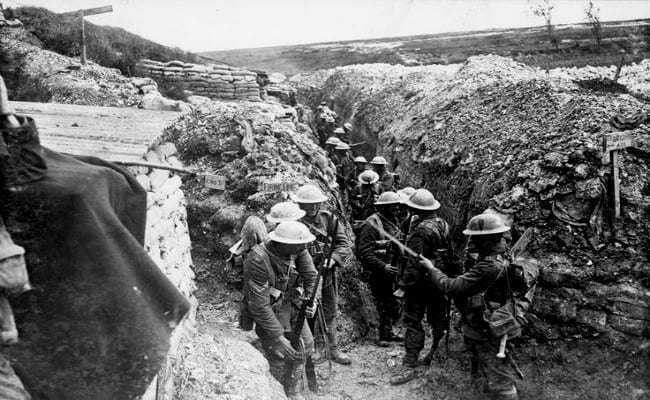With WWI entering its 3rd calendar year, the British Prime Minister Herbert Asquith was forced to take drastic and unprecedented action. He introduces the first conscription bill in his country history on this date in 1916. The bill was presented to the House of Commons on this day. The British high command had urged the government to introduce conscription in order to help the war effort. They believed that they would only be victorious if Britain fought a total war. The politicians had long resisted conscription and hoped that Britain’s wealth and industrial might would help it to win the war.
In the early months of the war, the British army had been able to secure enough volunteers to fill its ranks. By 1916 the army was finding it harder to find volunteers. In 1914 some half- a million men enlist voluntarily in the army and they were often used in the so-called Pals-Battalions. These were units composed of men from the same neighborhoods and districts. Many of the volunteers were considered not suitable for military service and this greatly worried the General Staff. Germany had long ago introduced conscription and as a result it had a large reserve of men who were trained to fight.

By 1916 the war had lasted longer than most had expected and the death toll was way higher than anyone anticipated in 1914. The British army was beginning to experience problems filling the ranks and replacing the dead and the injured. This was even with the large numbers of soldiers that were recruited from the British Empire. Asquith finally agreed to introduce a bill that established conscription in Britain. He knew it was deeply unpopular with the public and with many MPs. Yet he felt that he had no choice given the terrible losses suffered by the British army in battles such as Ypres. On January the tenth the bill became law and conscription was formally introduced. The introduction of the bill meant that males who were physically fit could be drafted into the army. Many men soon found themselves drafted into the army. It is believed that nearly half of the male population between 16 and 49 were drafted into the armed forces. This allowed the army and the navy to increase its size and to replace the many men they had lost throughout the war. The bill was unpopular with many Irish nationalists and it was one of the reasons behind the Easter Rising in Dublin in 1916. The Conscription bill may have been unpopular but it helped the country to prevail against Germany especially in the crucial battles of 1918.


